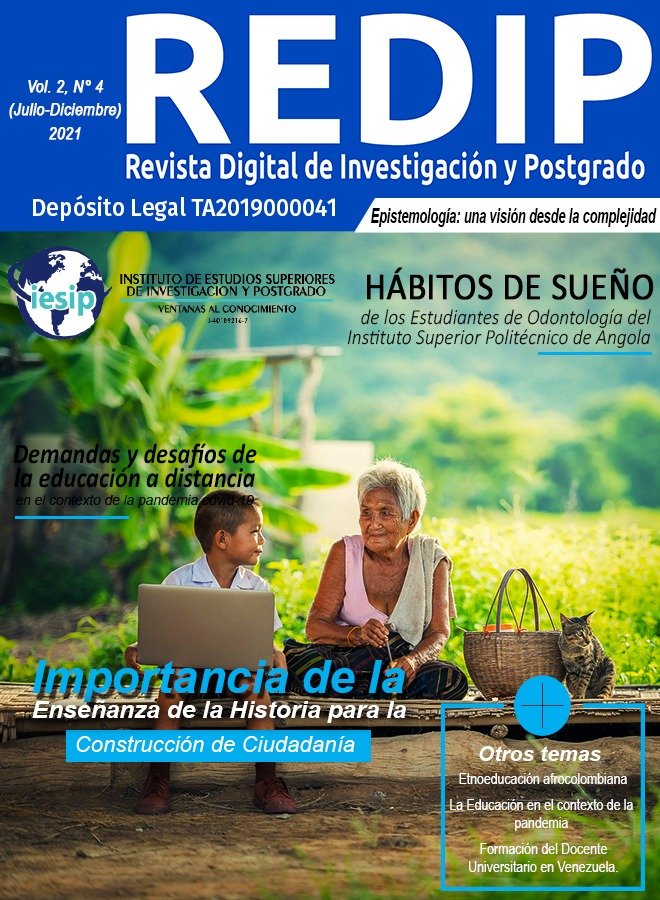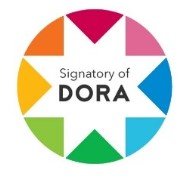Theoretical approach to affective pedagogical holopraxis in assessment
A 21st century educational vision
DOI:
https://doi.org/10.59654/mt745h16Keywords:
Pedagogical holopraxis, affectivity, qualitative paradigm, evaluation, complexity.Abstract
This article is about the pedagogical holopraxis in the framework of the most dynamic, intelligent and efficient development and exploitation of the didactic resources of the evaluation and learning processes, at a time when, teachers, as sole agents operators of learning, constitute the fundamental substrate of intelligent holopraxico development The objective is the theoretical approach for the affective pedagogical holopraxis in the evaluation, an educational vision of the 21st century. The study of human learning has been a fundamental object of philosophy and epistemology since the time of the Greeks, but in recent years a lot of attention has been paid by theorists in the management area. In management literature, learning is not defined from the philosophical point of view, but rather from the pragmatic point of view. The methodology that supports this document is framed within the qualitative paradigm, of a phenomenological nature. The main conclusion lies in transforming general thinking and its paradigms if you want to reverse educational thinking and its strategies. We must change the existing structures not only of thought, but in full conjunction with social practice and without losing the cultural sense in which it takes shape and unfolds as a complex system. Within the framework of human formation and its cultural development, education is essential. It constitutes the means par excellence through which man cultivates and prepares himself for life and society.
Downloads
References
Bachelard, G. (1987). La formación del espíritu científico. Siglo XXI Editores S.A.
Balza, A. (2011). Complejidad, transdisciplinariedad y transcomplejidad. Los caminos de la nueva ciencia. Venezuela: Asociación de Profesores de la Universidad Nacional Experimental Simón Rodríguez, APUNESR.
Blake, R., Mouton, J. S. y McCanse, A. A. (1989). Change by Design, Reading, Mass: Addison - Wesley. Edición en castellano: La estrategia para el cambio organizacional. Argentina: Addison-Wesley Iberoamericana.
Borrero L. (2010). Investigación. Universidades, Postgrados y Sociedad. http://www.monografias.com/trabajos17/investigacionpostgrados/investigacionpostgrados.shtml.
Briceño, E. (2011). Enfoques Principales y Tendencias en Dirección del Aprendizaje (Knowledge Management. En Hernández, R. (ed.) (2002): Holopraxis pedagógica: Desarrollos Teóricos y Aplicaciones, edición La Coria, Fundación Xavier de Salas, Cáceres.
Drucker, P. (1998). La gerencia. Tareas, responsabilidades y prácticas. Edit. El A.
Drucker P. (2002) Teoría General de la Administración. Editorial Tropykos.
Fernández, A. (2001). Complejidad y Pensamiento Social. Programa Most. Unesco.
James, A. F., Stoner, R., Freeman, R. E y Gilbert, D. R. (1996). Administración. Prentice – Hall.
León F. y Montero H. (2007). La Holopraxis pedagógica y la universidad del Futuro. Revista FACES. 7(1). http://servicio.bc.uc.edu.ve/faces/revista/vol27n1/art%202.pdf.
McGill, M. E. y Slocum J. W. (2004). La Organización inteligente: ¿Cómo construir un Aprendizaje que las instituciones y se adapta a necesidades del mercado. Wiley. USA.
Moreno, N. y Rodríguez, F. (2002). La gestión de la información como base de la holopraxis pedagógica y del aprendizaje organizacional en las universidades. En Revista Cubana de Educación. 22(2), 19-36.
Morín, E. (2004). El método 3. El conocimiento del conocimiento. Ediciones Cátedra.
Morín, E. (2009). Los siete saberes necesarios para la Educación del Futuro. Editorial Mc. Graw Hill.
Nonaka, I. y Takeuchi, H. (2005). La entidad la creación de aprendizaje: una nueva perspectiva en la teoría de la institución. Oxford University Press.
Nonaka, I. y Takeuchi, H. (2007). La organización creadora de aprendizaje. Oxford University Press.
Rodríguez, G. G., Gil, F. J y García, G. E. (2014).Metodología de la Investigación Cualitativa. (2da Edición). Ediciones Aljibe.
Schavino N. y Villegas L. (2010). La Sociedad Transcompleja y la Praxis Andragógica en la Educación. Editorial Mc. Graw Hill.
Downloads
Published
Issue
Section
License
Copyright (c) 2024 Revista Digital de Investigación y Postgrado

This work is licensed under a Creative Commons Attribution-NonCommercial-ShareAlike 4.0 International License.
Esta licencia permite a los reutilizadores distribuir, remezclar, adaptar y desarrollar el material en cualquier medio o formato únicamente con fines no comerciales, y solo siempre que se atribuya al creador. Si remezclas, adaptas o construyes sobre el material, debes licenciar el material modificado bajo términos idénticos. CC BY-NC-SA incluye los siguientes elementos:
![]() POR: se debe dar crédito al creador.
POR: se debe dar crédito al creador.![]() NC: Sólo se permiten usos no comerciales de la obra.
NC: Sólo se permiten usos no comerciales de la obra.![]() SA: Las adaptaciones deben compartirse en los mismos términos.
SA: Las adaptaciones deben compartirse en los mismos términos.











